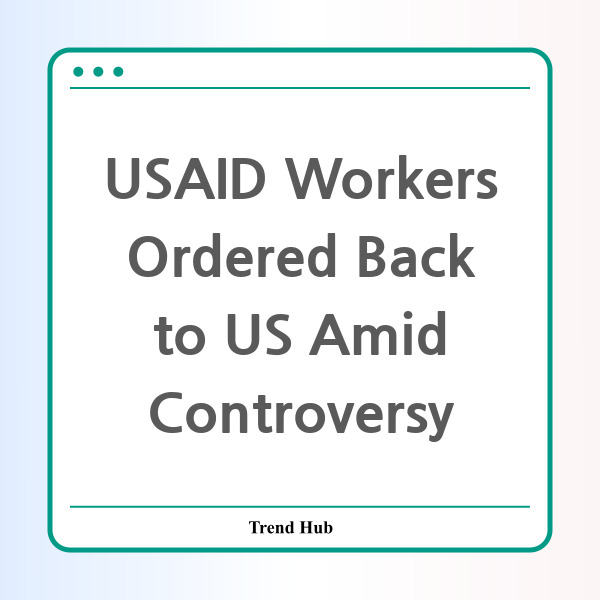* This website participates in the Amazon Affiliate Program and earns from qualifying purchases.

What happens when government agencies face drastic policy shifts and upheaval? The recent directive from USAID provides a clear illustration of the challenges faced by public servants in politically charged environments. On Friday, September 29, 2023, all USAID direct hire personnel stationed around the globe will be placed on administrative leave and required to return to the United States. This unprecedented move has caused significant concern among employees and raised questions about the future of the agency itself.
According to a statement made by the agency, all employees, with few exceptions for those involved in mission-critical functions, will be affected. This directive came shortly after many contractors working with USAID were already being laid off or furloughed. The upheaval at USAID is symptomatic of a broader trend of dismantling governmental bodies that have historically played critical roles in international aid and development.
As the United States Agency for International Development (USAID) prepares to implement this policy, it has stated that they will arrange and cover travel expenses for affected employees to return home within 30 days. This step further complicates the lives of many officials who may have children in school abroad or spouses who are employed in their host countries, essentially uprooting family lives overnight.
The backdrop of this situation is even more concerning. The current administration has been vocal about its intent to dismantle the agency, which provides vital humanitarian aid around the world. Although the president has frequently claimed that the agency is filled with "radical-left Marxists" and has called for its dissolution, a recent report from the Congressional Research Service underscores that any move to fully abolish USAID would require congressional approval.
In a letter to staff, the acting deputy administrator, Peter Marocco, instructed employees to provide their personal contact information to remain accessible during the leave period. However, the uncertainty and chaos surrounding these directives have left many employees in a state of anxiety and confusion. Reports have surfaced of staff members receiving bounce-back emails when attempting to contact their supervisors, further highlighting the disarray within the agency.
As civil servants and contractors grapple with their sudden suspension, questions loom over the agency's future direction. Historically, USAID has been responsible for dispelling billions of dollars in humanitarian aid aimed at eradicating poverty, combating diseases, and responding to disasters worldwide. Yet, the agency's recent tumult reflects an alarming trend of instability within the federal workforce, especially as the administration continues to work on overhauling governmental structures under the watchful eye of private sector leaders.
In essence, this situation serves as a cautionary tale regarding the fragility of governmental institutions in the face of political power struggles. The ramifications of dismantling or severely curtailing agencies like USAID extend far beyond the employees impacted; they can have dire consequences for global humanitarian efforts that millions rely on. As we witness the unfolding of these events, one cannot help but wonder what the long-term implications will be for both domestic governance and international relations.
In conclusion, the change at USAID not only affects the employees ordered back to the US but also raises critical questions about the future of global aid and the importance of maintaining robust channels of humanitarian support. As debates continue around governance and the role of agencies such as USAID, it is crucial that the voices of those serving on the front lines of international development are heard and considered.
* This website participates in the Amazon Affiliate Program and earns from qualifying purchases.